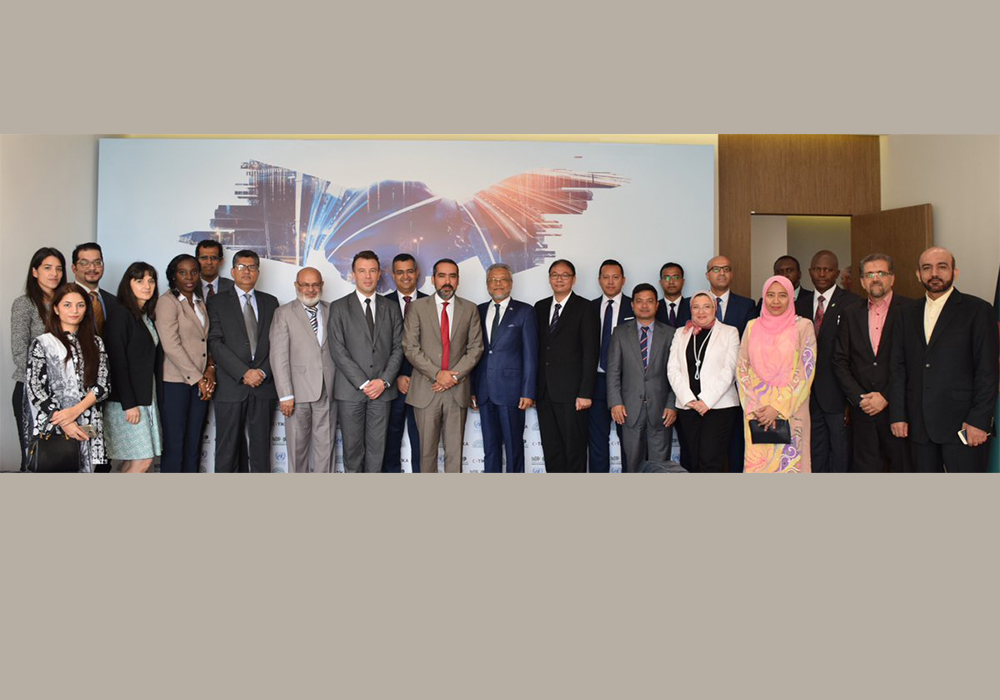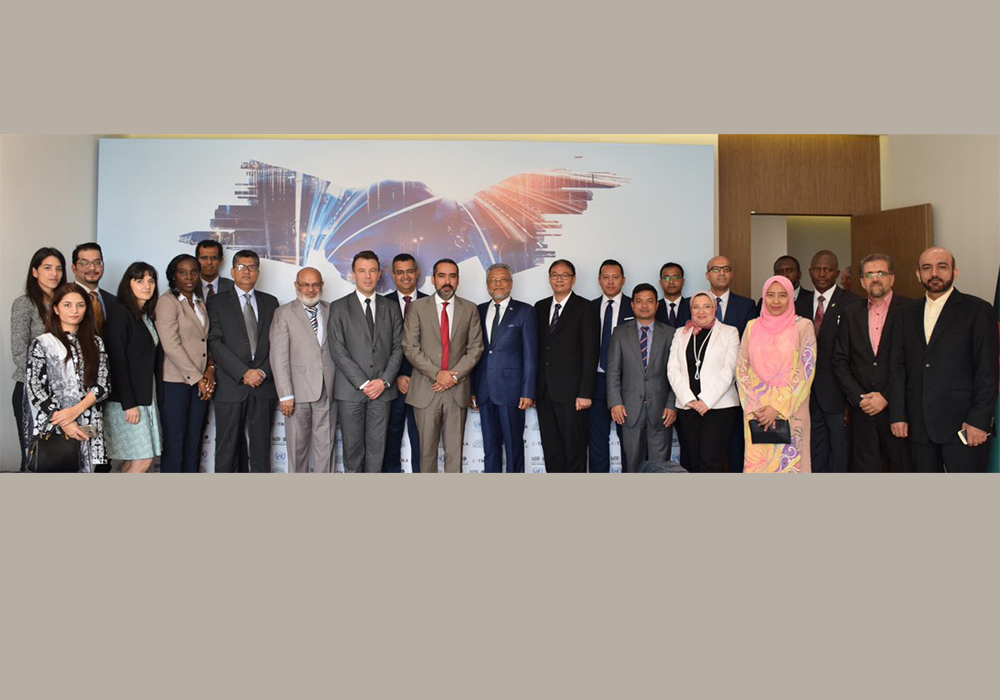
“Workshop for D-8 Countries on International Investment Agreements Reform for Sustainable Development” jointly organized by D-8 Secretariat and United Nations Conference on Trade and Development (UNCTAD), in cooperation with the Islamic Development Bank (IsDB) and Turkish Coordination and Cooperation Agency (TIKA) was held from 12-13 September, 2019 in D-8 Headquarters in Istanbul, Turkey. Leading experts from the organizing bodies, senior legal experts from the Member States, members of academia and other contributors including the European Union (EU) and the World Association of Investment Promotion Agency (WAIPA) attended the workshop to exchange know-how and experience on the IIA Reform.
In his speech on behalf of the IsDB, Head of Country Strategy and Market Integration, Mr. Syed Husain Quadri briefed the floor on the mandates, activities and financial tools of the Bank, especially in terms of fostering sustainable investment in OIC Member States. Mr. Quadri emphasized the importance of foreign direct investment (FDI) for the economic growth of OIC Members, and listed some of the key measures to ensure the long-term success of FDI policy. He highlighted the importance of public investments, job creation, environmental regulations and well-functioning markets for the overall success of investment policy.
Senior Expert from the Division of Investment and Enterprise of UNCTAD, Mr. Hamed El-Kady reaffirmed the importance of investments for sustainable economic growth but pointed out to an existing challenge surrounding the issue, which is the stock of old-generation Bilateral Investment Treaties (BITs). Mr. el-Kady informed the meeting that most BITs signed in 80s and 90s do not reflect today’s priorities such as SDGs. He presented striking examples from various countries where the host country failed to protect its national priorities such as public health and environmental conservation, in the face of international arbitration. In this regard, he suggested a roadmap to modernize these BITs in line with the sustainable development imperatives, balancing the rights and obligations of the State and investors. He presented some of the leading documents and strategies prepared by UNCTAD to capacitate Member States on how best to design their investment policies on national level and further called D-8 Member States to cooperate as a group as to strengthen their overall position in such treaties.
Against this backdrop, legal experts from the Member States delivered their presentations, highlighting the challenges they faced regarding BITs, their efforts to modernize investment policy and develop a model BIT. Mr. Mohammad Mahdi Dalvand (Iran), Mr. Gazi Fazlul Haque (Bangladesh), Mrs. Patience Okala (Nigeria), Mr. Arslan Akpınar (Turkey), Ms. Norazilawati Binti Rohanuddin (Malaysia), Mr. Syed Mohd Faizal Bin Syed Mohd Dardin (Indonesia), Mr. Rıfat Parvez (Pakistan) and Mr. Moataz Huessin (Egypt) briefed the meeting on their country’s experience. Mr. Ismail Erşahin from WAIPA and Mr. Bartosz Przywara also made important contributions regarding IIA reform, providing insights from their respective organizations. Under the moderation of Ms. Rasha Hamdy Hussein (D-8 Secretariat), Mr. Makane Moise Mbengue (University of Geneva) and Ms. Mavluda Sattorova (Liverpool Economic Governance Unit), all participants engaged in a number of interactive discussions throughout the two-days meeting.
Participants agreed on the importance of well-trained and specialized staff in negotiating the terms of investment treaties, especially with developed countries. In this regard, D-8 Secretariat together with UNCTAD was asked to initiate a training program for the junior officials of the Member States. They also reached a consensus to act as a forum, representing D-8 in international fora. They further requested the continuation of the workshop on annual basis as to maintain communication and share of expertise. The workshop was successfully adjourned after the adoption of “Workshop Recommendations” document, attached herewith.



